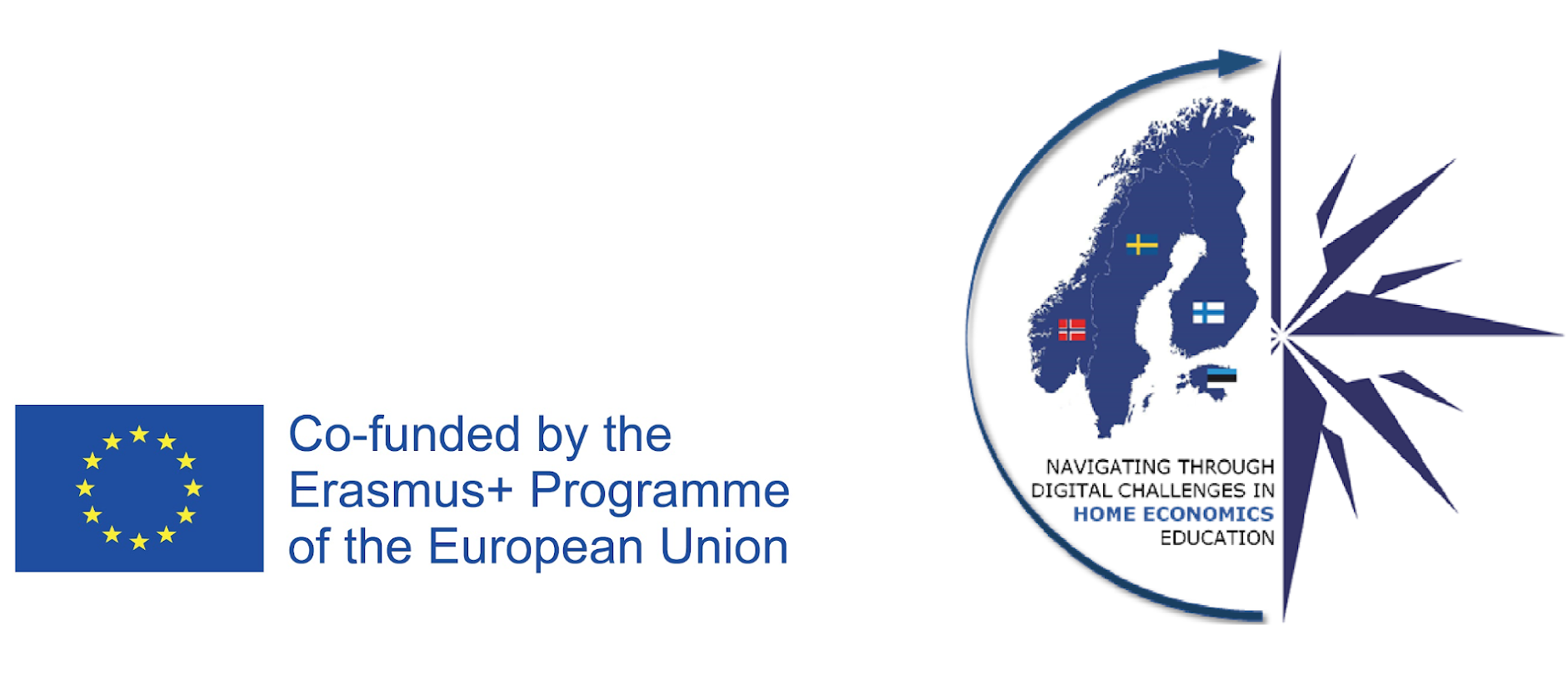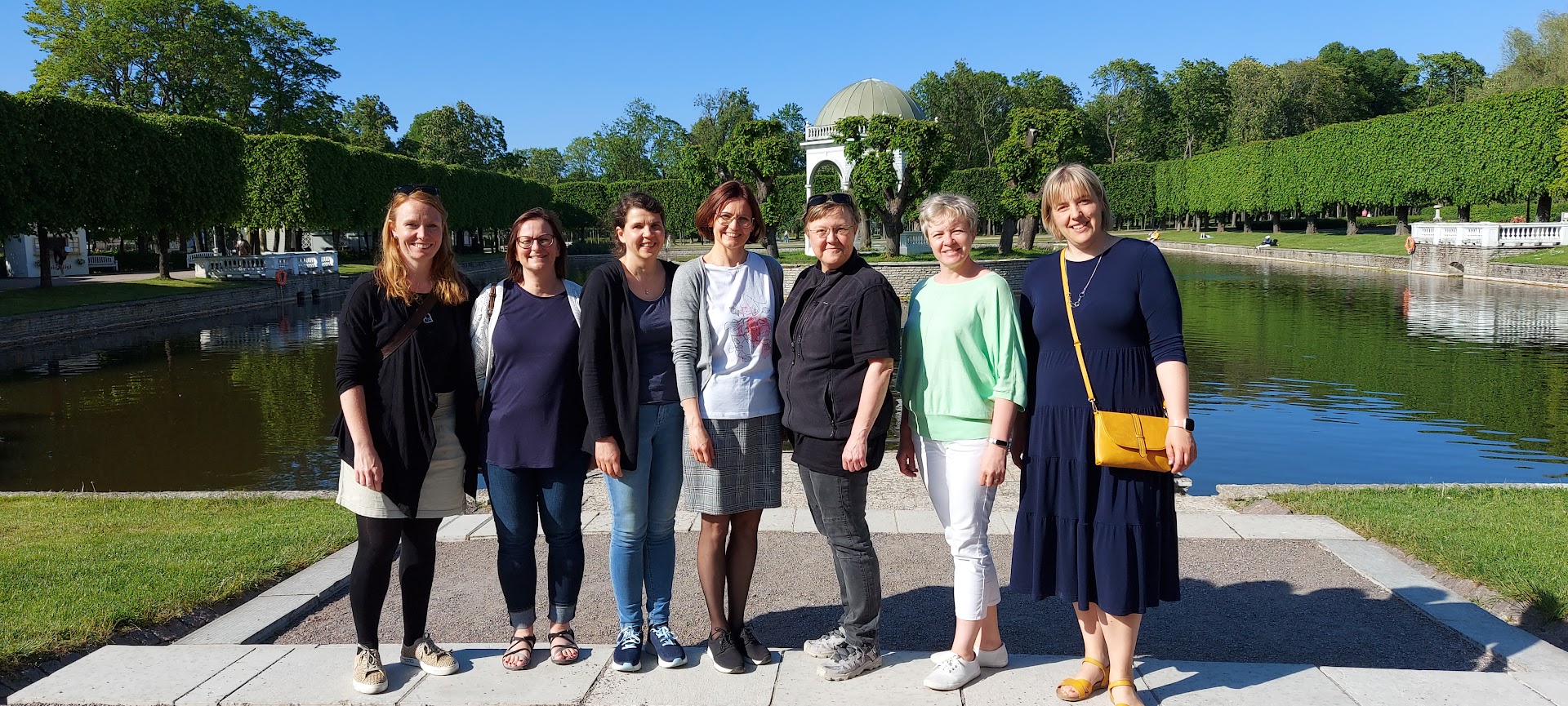NAVI-HED
About the project
- Project period is May 2021 – April 2023
- It is an Eramsus+ KA226 project, code 2020-1-EE01-KA226-SCH-093386
- NAVI-HED - Navigating through Digital Challenges in Home Economics Education. See the project at Estonian Research Information System - ETIS.
- Coordinator - Jaana Taar, Associate professor of Home Economics. Tallinn University School of Natural Sciences and Health
- The outcome of the project: completed materials in 5 languages (EST, ENG, FIN, SWE, NOR)

OVERVIEW
Teachers of HE education in Nordic-Baltic countries have faced similar challenges in using digital tools in classroom settings. Although digital tools are only one side of the coin, it is important to find methods to implement digital technology into subject teaching in a pedagogically meaningful way. The pandemic period demonstrated how difficult it is for teachers to provide relevant instruction for students with different background knowledge and skills, to evaluate the outcomes and to give suggestions without face-to-face contact. Especially difficult was teaching such practical subjects like crafts and home economics.
NAVI-HED project aims to collect and disseminate best practices to support educators in the field of HE so that they can obtain the knowledge and skills to use digital tools in a pedagogically supportive way in the context of distance/blended teaching. Our target group in this project is comprehensive school HE teachers in Estonia, Finland, Norway and Sweden. The project has three stages: First, we study the topical scientific literature to raise participants’ knowledge as well as to close the gap between practitioners and scientists. Second, we use the Delphi method to collect pedagogical ideas for distance/blended learning situations. Expert teachers are closely related throughout the project period when developing the collected ideas further. Third, we introduce the developed booklet of pedagogical practices and ideas in each participating country on a teachers’ seminar day and distribute the knowledge among a wider audience.
